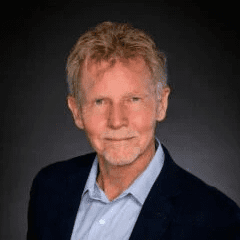Most therapists, when asked, report checking in routinely for client feedback and knowing when to do so. But research has found this to be far from true.
For their part, therapists who consistently achieve the best outcomes (who are sometimes referred to as “supershrinks”) consistently seek client feedback about how the client feels about them and their work together, despite not getting a response most of the time. Persistence in the face of infrequent payoff is a defining characteristic of those destined for greatness.
When a simple measure of the alliance from the results of client feedback is used in conjunction with a standardized outcome scale, available evidence shows clients are less likely to deteriorate, more likely to stay longer, and twice as likely to achieve a clinically significant change. As John F. Kennedy was fond of saying, “A rising tide lifts all boats.”
While it’s true that the tide raises everyone, supershrinks continue to beat others out of the dock. Superior performers engage in significantly more deliberate practice than most. In practical terms, the process of becoming a super performer involved three steps: think, act, and—finally—reflect.
In the think phase—to prepare for moving beyond the realm of reliable performance—the best of the best engage in forethought; they set specific goals and identify the particular ways they’ll use to reach their goals. It’s important to note that superior performance depends on attending to both ends and the means, simultaneously.
In the act phase, successful experts track their performance: They monitor it on an ongoing basis using a variety of methods, including client feedback. The sheer volume of detail gathered in assessing their performance distinguishes the exceptional from their more average counterparts.
During the reflection phase, top performers review the details of their performance, identifying specific actions and alternate strategies for reaching their goals. Where unsuccessful learners paint with broad strokes, attributing failure to external and uncontrollable factors, the experts know exactly what they do and more often cite controllable factors.
Average practitioners are far likelier to spend time hypothesizing about failed strategies and less time thinking about strategies that might be more effective.
The penchant for seeking explanations for treatment failures can have life-and-death consequences. In the past, physicians have been quick to attribute a high mortality rate to the serious illness itself. After all, why search for alternative methods if the disease invariably kills?
Although certainly less dramatic, psychologist William Miller makes a similar point about psychotherapy, noting that most models don’t account for how people change, but rather why they stay the same. Diagnostic classifications often serve a similar function by attributing the cause of a failing or failed therapy to the disorder.
Scott Miller
Scott D. Miller, PhD, is the founder of the International Center for Clinical Excellence an international consortium of clinicians, researchers, and educators dedicated to promoting excellence in behavioral health services. Dr. Miller conducts workshops and training in the United States and abroad, helping hundreds of agencies and organizations, both public and private, to achieve superior results. He is one of a handful of “invited faculty” whose work, thinking, and research is featured at the prestigious “Evolution of Psychotherapy Conference.” His humorous and engaging presentation style and command of the research literature consistently inspires practitioners, administrators, and policy makers to make effective changes in service delivery. Learn more at scottdmiller.com.
Barry L. Duncan
Barry L. Duncan, PsyD, is a therapist, researcher, trainer, and the CEO of Better Outcomes Now, the web and mobile application for PCOMS. He’s the author of 15 books and over 150 publications on PCOMS, the common factors in effective therapy, and client privilege.
Mark Hubble
Mark Hubble, PhD, is a cofounder of the Institute for the Study of Therapeutic Change. He has co-authored and edited numerous professional articles and books, including The Heart and Soul of Change: What Works in Therapy; Escape from Babel; Psychotherapy with Impossible Cases; and The Heroic Client. Recently, Hubble co-released a self-help book, Staying on Top and Keeping the Sand Out of Your Pants: A Surfer’s Guide to the Good Life.















